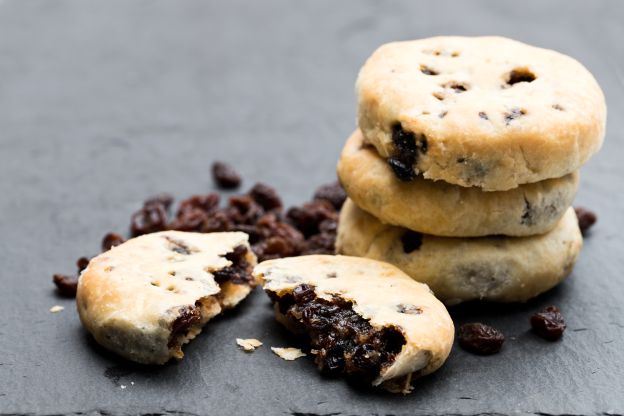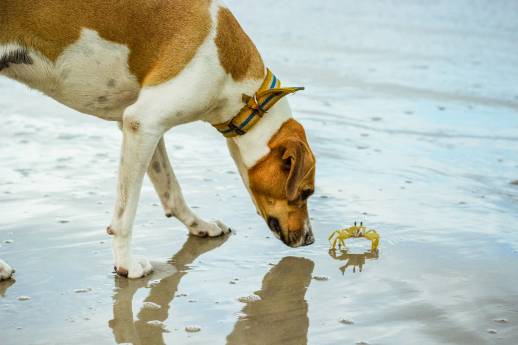Have you ever heard of Eccles cakes? Do you make them for Christmas or other special occasions? Even if you’re not familiar with this yummy cake, that’s OK. We’ll tell you about it!
Connect with a verified veterinarian in minutes. Licensed vets are available 24/7 to answer your questions. No need to worry about your furry family member.
Can Eccles cakes make your dog sick? Can Eccles cake be toxic to your dog?

What are Eccles Cakes?
Eccles cake is a type of round, small pie. In fact, if you see these on a plate, you may say they were turnovers. These yummy cakes are filled with currants put into a flaky pastry with butter. They may be covered with sugar on the top.
The Eccles cake comes from Britain and was first made in the English town of Eccles in the 17th century. This town is located in Lancashire, in the county of Manchester. These cakes are a Lancashire food tradition.
No one is quite sure who invented these cakes, but James Birch is usually the person named as the inventor. He sold the cakes in his shop, near the town’s center.
Traditional recipes for Eccles cakes are made with currants. The traditional recipe also includes:
- Butter
- Flour
- Water
- Dark brown sugar
- Currants
- Candied peel
- Zest of an orange
- Ground allspice
- Nutmeg
- Sugar (for the topping)
While these are great cakes for humans, can Eccles cakes make a dog sick? Are Eccles cakes toxic to dogs?
Eccles Cakes & Dogs
As you can see from the traditional recipe, Eccles cakes are really not healthy. They contain high amounts of butter and sugar. Both of these in large amounts can be bad for dogs, causing obesity and contributing to other health issues.
However, the most dangerous part of Eccles cakes is the currents. Currents are usually a type of dried grape, and just like raisins and sultanas, they are toxic to dogs. The exact mechanism is unknown but grapes (and their dried versions) can cause kidney damage and even death in dogs. In some dogs, even just eating one or two could cause serious problems.
Then there are the spices, which include allspice and nutmeg. In large amounts, these can cause health issues in dogs. However the low levels in Eccles cakes are unlikely to cause toxic symptoms.
So, can your dog eat Eccles cakes? The answer is no. These are really not healthy for dogs, especially for those that may hog down the entire batch. They could become very sick, mainly due to the currents that they contain.
We recommend not even sharing these yummy desserts with your dog. So, be sure to keep them where he can’t reach them! If your dog accidentally eats even a small amount of an Eccles cake, contact your vet immediately.
Connect with a verified veterinarian in minutes. Licensed vets are available 24/7 to answer your questions. No need to worry about your furry family member.

Rebecca MacMillan, BVetMed BSAVA PGCertSAM MRCVS
This article has been reviewed and approved by an independent Veterinarian: Rebecca is a companion animal vet who has always had a passion for writing and client communication. Since her graduation from the Royal Veterinary college in 2009 she has gained a wealth of experience in first opinion small animal practice, in both clinical and managerial roles. She currently works in the South West and deals with a variety of routine and emergency appointments, but particularly enjoys medicine cases. Outside of work and writing, she enjoys spending time with her family, including her bouncy flat coated retriever George!
Review symptoms, medications & behavior to keep your pets healthy with a Vet Online in just minutes.
Ask a Vet Live Now





